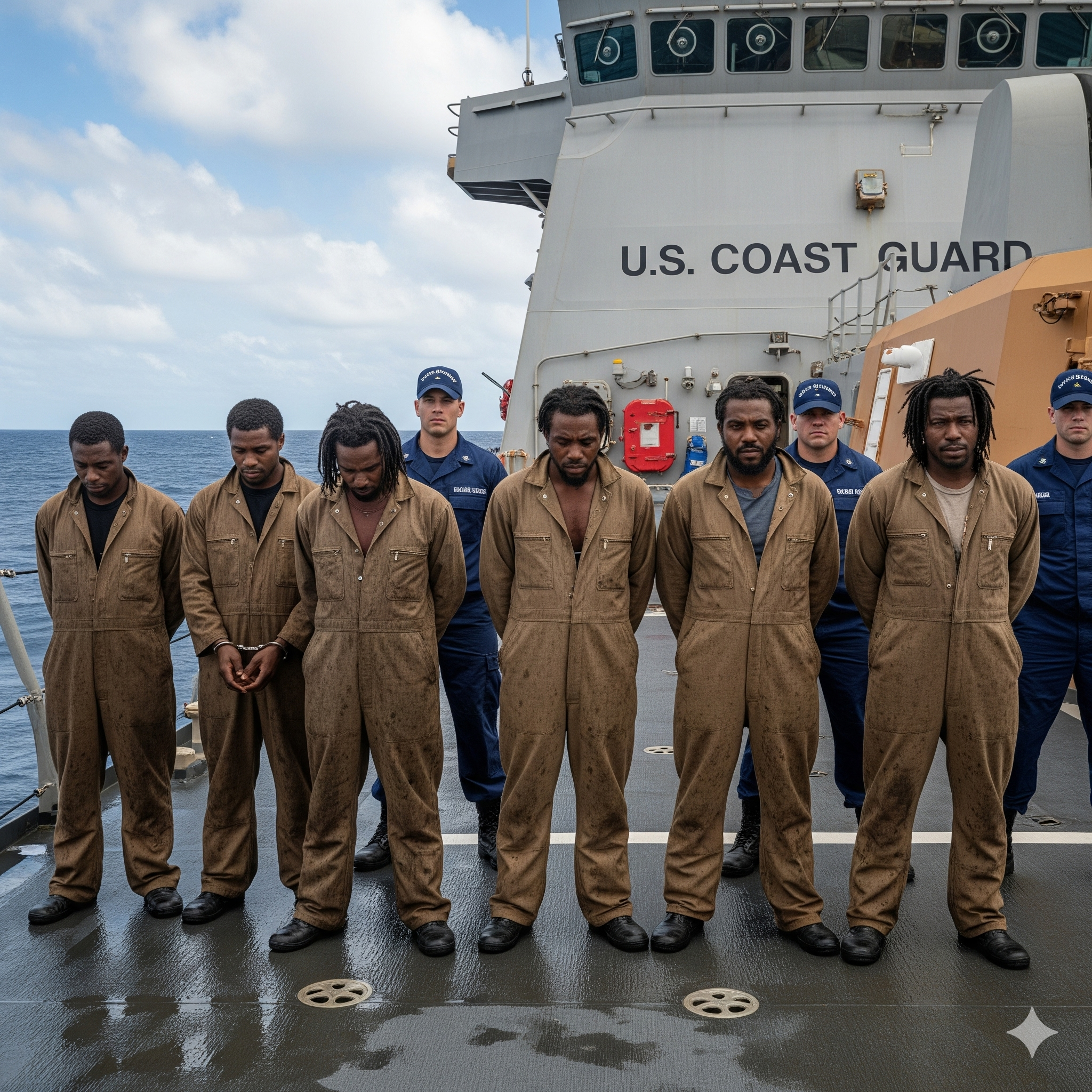Four Jamaican fishermen are still fighting for justice years after they were seized in international waters by the U.S. Coast Guard, chained to the decks of American vessels for more than a month, and had their boat shot, burned, and sunk before their eyes.
The men — Robert Weir, Patrick Ferguson, Luther Patterson, and David Williams — left Portland Parish, Jamaica, on September 13, 2017, for what was supposed to be a short fishing trip to Morant Cays. When their engine failed, they drifted toward Haiti, where they were intercepted by the Coast Guard.
According to court filings and ACLU reports, Coast Guard officers forced the fishermen aboard a cutter, stripped them, gave them only thin coveralls, and shackled them to open decks. For 32 days, the men endured blazing sun, heavy rain, and even a hurricane without shelter. Their skin blistered, they were denied showers and medical care, and were not allowed to contact their families.
“They treat you like animals,” Patterson said in a sworn statement. “You are like an animal… chained to the deck.” Their fishing boat, the Jossette, was destroyed — riddled with bullets and set ablaze until it sank.
In October 2017, the men were taken to Miami, initially charged with drug trafficking. When prosecutors dropped those charges, they pleaded guilty to providing false information to the Coast Guard — a plea their lawyers say was the only way to get home quickly. They served roughly ten months in U.S. prison, then spent two more months in immigration custody before finally returning to Jamaica in August 2018.
In 2019, they filed a civil lawsuit — Weir v. United States — seeking damages and an official acknowledgment of their mistreatment. In January 2021, a federal judge allowed most of their claims to go forward, rejecting a government bid to dismiss the case. The United States settled the suit in May 2024, paying the men $97,500.
Despite the settlement, their legal team continues to press for their criminal convictions to be vacated, arguing that the U.S. had no jurisdiction to prosecute Jamaican nationals on a Jamaican vessel in international waters.
This case should have sparked a debate across the Caribbean about the reach of U.S. maritime law and the treatment of regional fishers intercepted on the high seas. Unfortunately, it did not.
